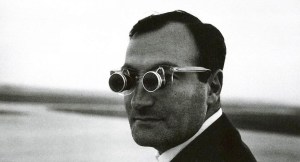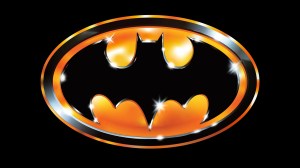A sci-fi movie that dives into time travel can be fascinating, but it’s also one of the toughest concepts to pull off in film. Some movies manage to create loops and paradoxes that actually make sense, even if you have to think twice, like Donnie Darko or Looper, which are confusing but consistent within their own logic. Others, like Avengers: Endgame or Back to the Future Part II, are visually stunning and fun, but people still debate whether the way they mess with the past actually holds up. And somewhere between these extremes, there are films that genuinely respect physics or causality, avoiding plot holes and showing that time travel can be more than just a dramatic device or a setup for twists.
Videos by ComicBook.com
In this list are 4 solid time travel movies that make the concept work within their own universe’s rules while still making sense scientifically.
4) Predestination

Predestination doesn’t waste time trying to explain the time travel technology, and it doesn’t need to, because it’s so coherent and straightforward, you naturally see that it makes sense right away. Exploring time loops, the movie follows a temporal agent trying to stop a terrorist called the Fizzle Bomber, only to discover that his own life is completely entangled in the cycle. It’s one of the coolest sci-fi (and thriller) time travel stories, and the kind of narrative where every event has a clear cause-and-effect, not just a bunch of random time jumps thrown in for tension.
It might be a little mind-bending, but it’s logical and flawless: nothing happens by accident, and nothing breaks the story’s internal rules. This is classic bootstrap paradox territory. Rarely do time travel films manage to avoid contradictions like this. In short, Predestination works because every move the protagonist makes respects the causal logic of the loop without overcomplicating things. It’s a perfect example of how science (or at least the logic of time) can be handled consistently without turning the movie into a quantum physics manual.
3) The Terminator
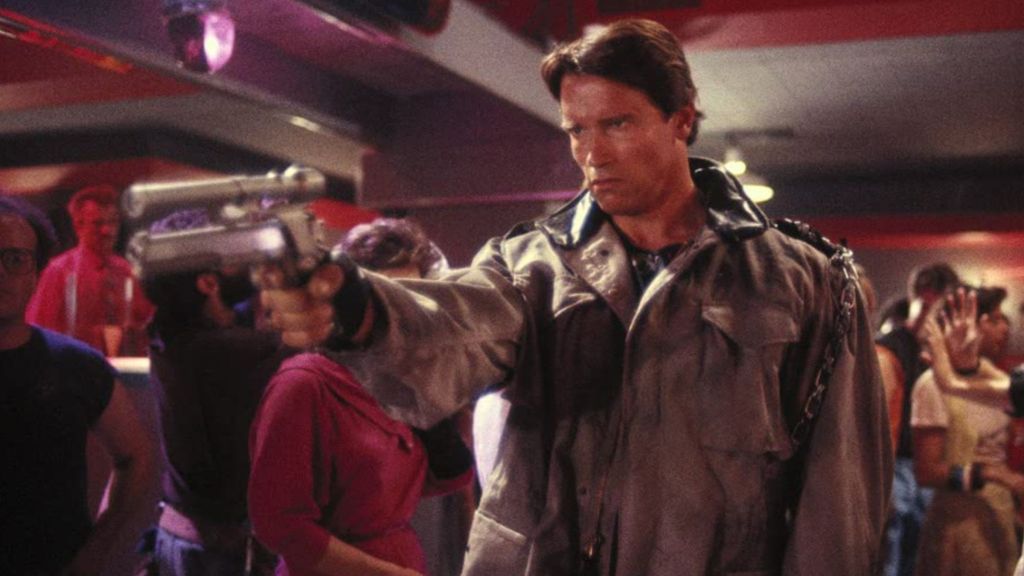
One of the classic films from the ’80s might not seem like it, but it’s actually more “scientific” than most time travel movies that just use a futuristic device as an excuse. In The Terminator, a cyborg is sent from the future to eliminate a resistance leader’s mother before he is born. The film works with the classic grandfather paradox: if you go back in time and change something in the past, you risk even your own existence. The time machine is never explained, but that’s fine, because the cause-and-effect logic is rock solid.
The tension in the story doesn’t come from the technology itself, but from the inevitable consequences of messing with the past. Every action the characters take directly impacts the future, and the movie doesn’t ignore that — that’s exactly what makes it work. The Terminator understands that tampering with the past comes with logical costs, and it doesn’t shy away from showing them, making the whole concept far more believable than most other blockbusters of its era.
2) Interstellar
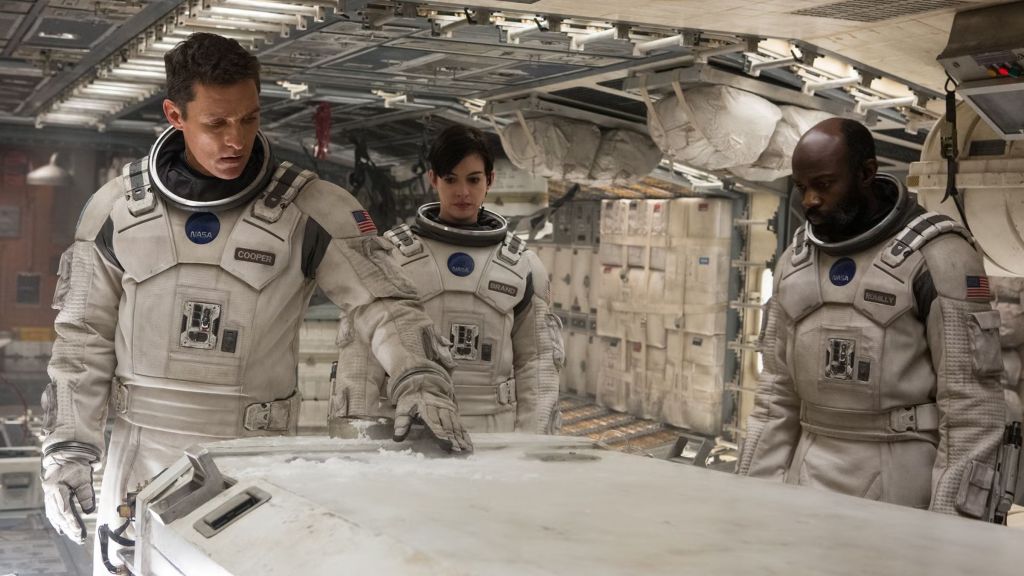
Christopher Nolan’s movies usually demand a lot from the audience, but Interstellar is actually pretty accessible. And from a scientific standpoint, it might be the most ambitious film that really dives into what time travel could actually mean. The story follows a NASA pilot and his team as they try to find a new home for humanity, and one of the planets orbits so close to a black hole that one hour there equals seven years on Earth. But the time dilation near this black hole isn’t just a dramatic visual effect — it’s real physics. Time actually moves more slowly in intense gravitational fields, and the film illustrates this in a very clear way.
The brilliance of Interstellar is how it turns the mission into a desperate race against real time, and the emotional impact of that real physics is explored with remarkable effectiveness. People still talk about this film today, and it’s because the science is precise. There’s nothing fictional about the black holes or the wormhole. The film doesn’t arbitrarily invent how time works; it visually demonstrates Einstein’s theory of general relativity in a way audiences can grasp. And even with speculative elements like the tesseract, it’s still grounded in ideas from relativity and modern theoretical physics.
1) Primer
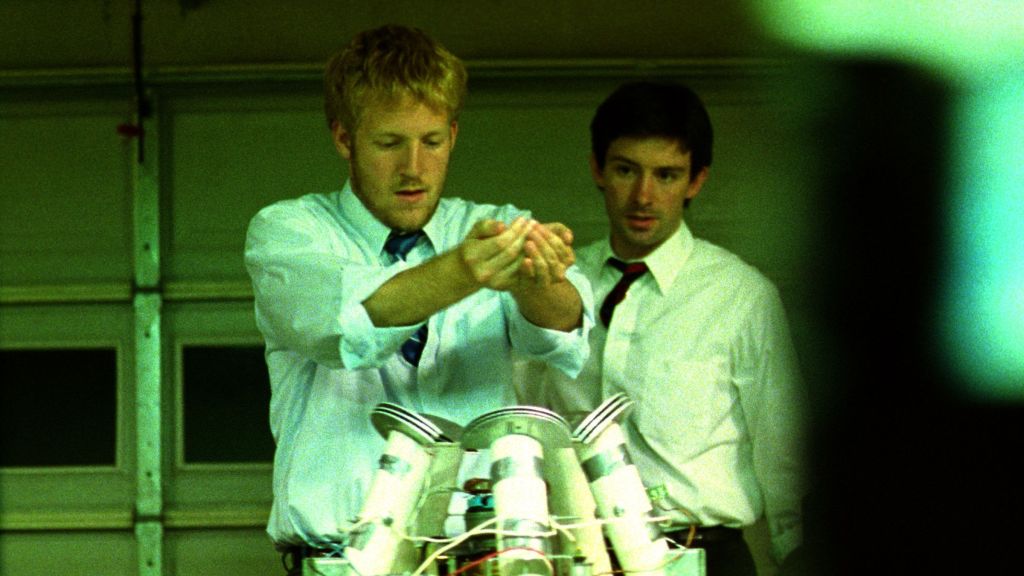
If you want to see time travel that actually makes sense in every way, nothing tops Primer. The film is minimalist (almost indie), but it works because it treats time travel as a technical problem, not magic. In the story, two engineers accidentally invent a time machine and spend the entire film dealing with time loops, diagrams, spreadsheets, and the logical consequences of every trip. This is sci-fi nerdiness done right, the kind of technical focus the genre rarely reaches. Here, the science actually works flawlessly.
What happens is that every action creates unexpected complications. Loops within loops turn the whole story into a logical puzzle, and every decision carries weight. The point is to show that time travel isn’t fun like in a lot of movies: it’s risky, technical, and mentally exhausting. It can be hard to follow because the movie doesn’t stop to explain what’s happening — you have to track the details, calculations, and logic as if you’re part of the experiment. But Primer is genius and sets the gold standard: the science isn’t just window dressing, it drives the story, and everything makes sense in a very concrete way.
Have you seen any of these movies? What do you think about the science behind them? Let us know in the comments!

